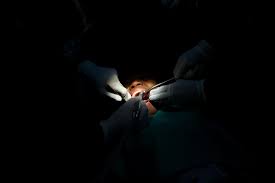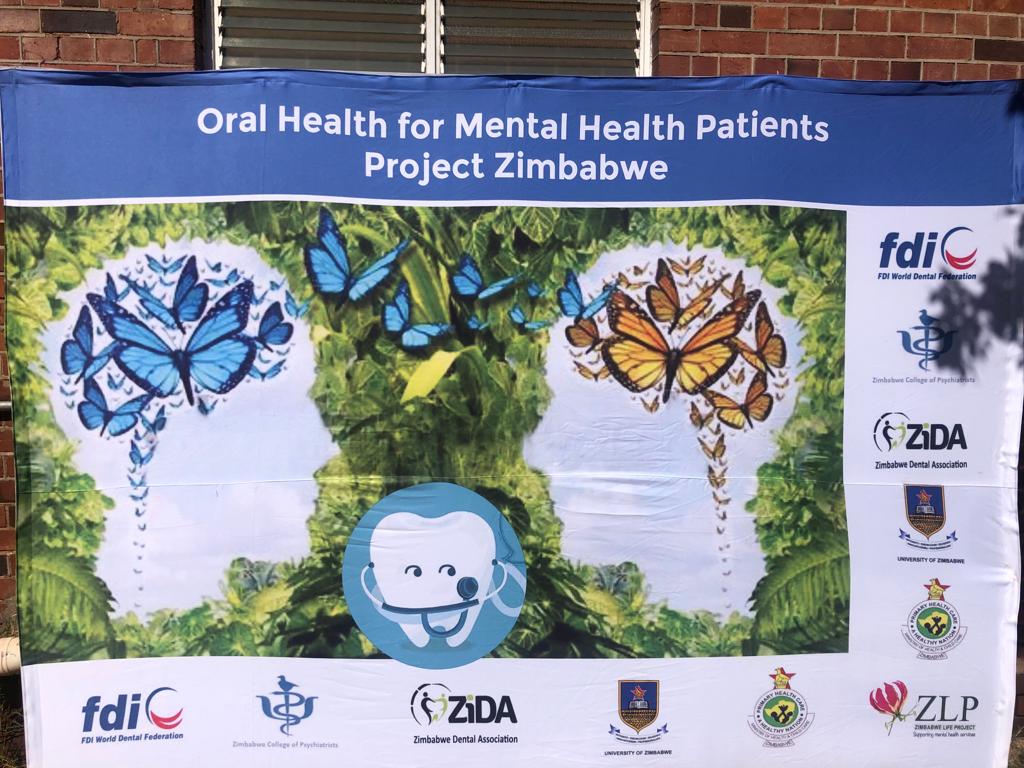Ingutsheni receives training on oral health care for patients

Dentists and health care workers in Bulawayo have received training on oral health care for mentally ill patients, since research shows that a large number of mental patients and those who have struggled with substance abuse suffer from a variety of dental health problems.
The training took place at Ingutsheni Central Hospital and is part of Zimbabwe’s Oral Health Care for Mental Patients Project, which was established in 2019 following a collaboration of some dental and mental health specialists through their respective professional organisations.
The project’s goal is to improve oral health care for mental health patients, as well as to improve mental practitioners’ knowledge and attitudes so that they can aid mental patients who are already disadvantaged and ostracised by communities.

Dr Cleopatra Matanhire-Zihanzu, Director of Oral Lung Axis Trust (Oral-T), confirmed to journalists on the sidelines of the training last week that dentists had discovered that many mental patients and those suffering from substance abuse issues had advanced oral health conditions.
“This is because mental patients were not getting access to dental treatment and access help on time so that the disease could be stopped,” she said, adding a study was then conducted among mental and oral care practitioners to improve access for mentally ill patients.
“Approximately 1.4 percent of mental professionals responded that they had undergone formal oral health care management training and that more training, including resource guides to be used as a reference material in the management and welfare of mentally ill patients, would be beneficial.”
According to Dr Matanhire-Zihanzu, the first phase of the initiative concluded in June 2022 with a resource and oral mental health stakeholders briefing meeting in Harare.
“The first phase was sponsored by the International Dental Federation, the Zimbabwe Dental Association, Zimbabwe College of Psychiatrists, the Ministry of Health and Child Care, the University of Zimbabwe and Zimbabwe Life Project,” she said.
For the current second phase, support came from the University of Zimbabwe, through its Partnership for Education Training and Research Advancement.
“We are assessing what was proposed in the first phase to equip mental health professionals to detect oral conditions so that they can refer them to the appropriate places for the solutions that they require for the condition that is actually happening and in place,” said Dr Matanhire-Zihanzu.
This year, the first cohort of training began in Harare, with 20 oral mental professionals participating, who are currently rolling out more trainings at Ingutsheni Hospital, which has been designated as the pilot for providing dental health care for mental patients.
“We are excited because we are doing outreach, attending to the mental patients, doing dental check ups, screening, providing health education with the intention of improving accessibility to dental services at Ingutsheni where there is actually a dental unit,” said Dr Matanhire -Zihanzu.
One of the partners, Zero Water Day Partnership, a German-based non-governmental organisation, was happy with the project, saying that oral health care may be replicated in other nations, including those in Europe and the West.
“This project can be presented on an international stage and will be showcased at an oral health event in Washington DC in the United States,” said Julian Fisher from Zero Water Day Partnership.
“I have been working with the team here to prepare materials and to present what Zimbabwe has been doing because this project is very creative, progressive and innovative,” he said and praised Zimbabwe for implementing it.
“A lot of countries are talking about providing oral health care for mental patients but here in Bulawayo, Zimbabwe you are actually doing it. Most interesting is we had an oral health resolution for the World Health Organisation in 2021 and a lot of the things contained in there are what is being done here. My interest is showing this work to an international audience.”
Fisher stated the oral health care project may be used to dispel the negativity associated with Zimbabwe because, despite the constraints in the country, the project was encouraging.
“People say that if I take work from Zimbabwe and share it in America, it has no or little relevance here, but using Sustainable Development Goals (SDGs), framing the project under them, and working with communities plus mental health workers can be applied to other countries,” Fisher said.
“I can take this back to Germany in Europe or to America, and people will understand the premise of what you are doing here inside the SDG targets because everyone is adopting them, and Zimbabwe has accepted such ahead of many other countries across the world.”
A Bulawayo-based dentist, Dr Susan Mushunje, claimed that oral health is a global issue and that there is a need for mental patients to undergo oral health care.
“These are people who are marginalized in their communities and do not have easy access to oral health care. We are attempting to create a pathway for them to receive these services even in the absence of an oral health practitioner, which is why we trained mental health practitioners such as nurses and health promotion officers to identify these conditions in the absence of a dentist,” she explained.
A public health practitioner currently designated as a health officer at Ingutsheni Central Hospital, Anesu Chinguwa, who received the training as a trainer described it as beneficial.
“I received a training on oral health for mental health patients and now we have come to also train our staff at Ingutsheni. Aabout 24 to 28 staff members have been trained and we are now rolling out this programme as an outreach to our mental health patients here at Ingutsheni,” she said.
“We will gain much from this study because there is a correlation between oral health and mental wellness. We hadn’t given it much thought before, but following the training, we realised that concerns like side effects from the drugs our patients take for therapy, as well as the issue of substance misuse, had a significant impact on their dental health.”
According to Chinguwa, health care personnel will then be able to recognize patients who have problems with their dental health and assist or refer them accordingly.
“Our referral will now be backed by knowledge, as health care workers will be able to tell if a patient has cavities or something else. I am a health promotion officer, and as part of promoting health, I now understand what oral health care is and how it is related in our context,” she said.
“This is a great project and going forward, we hope everyone has an understanding of how oral health is linked with mental health.”






